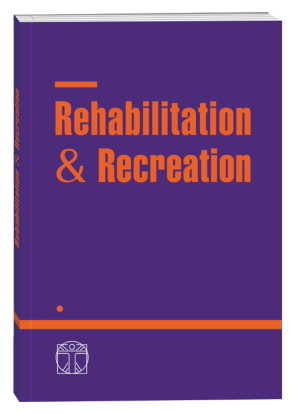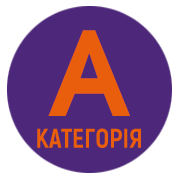DEPENDENCE OF PSYCHOLOGICAL AND PHYSICAL QUALITIES OF DRONE OPERATORS IN CONDITIONS CLOSE TO COMBAT
DOI:
https://doi.org/10.32782/2522-1795.2024.18.4.6Keywords:
psychological qualities, servicemen, operator, drones, physical training, combat activityAbstract
The Ukrainian-Russian war has shown that physical fitness is closely related to the nature and method of conducting combat operations, which, in turn, are determined by the means available to military personnel and the conditions under which combat operations take place. Changes in combat methods, the use of advanced technologies, and the increase in means of long-range destruction have led to the introduction of a new military specialty in the Armed Forces of Ukraine – drone operator. Specialists-operators of air, ground, and sea drones note that among the main qualities affecting task accuracy are psychological qualities, specifically: concentration and stability of attention, its switching and distribution, short-term and operational memory. Studies have shown that well-planned and organised physical training can improve and maintain psychological qualities at a level necessary for prolonged task performance under significant psychological stress and low physical activity. Purpose – to determine the physical qualities that most effectively support the maintenance of psychological qualities of military drone operators in conditions close to combat. Material and Methods. Subjects: 100 healthy cadets from a military educational institution. Four groups of cadets were formed, each consisting of 25 cadets. The first group included cadets with a high level of static endurance development (plank holding), the second with speed development, the third with general endurance, and the fourth with strength endurance. The age and duration of military service of cadets in both groups did not differ significantly (p>0.05). All participants in our study gave their informed consent to participate in the experiment. The studies were conducted and performed in accordance with the ethical standards of the Helsinki Declaration. Results. Under the influence of vestibular irritation, the psychological qualities of cadets of all groups decrease. Indicators of CPQ of cadets of the first group deteriorate by 2.8 (t=2.081; p<0.05), of the second group – by 4.75 (t=2.060; p<0.05). In cadets of groups 3 and 4, these indicators also decrease by 1.2 and 0.7, respectively, but there is no significant difference with the resting values (p>0.05). The indicators of PSU of cadets of groups 3 and 4 decreased by 0.85 and 0.4, respectively, which does not allow us to speak about a significant difference compared to the initial data of this indicator (p>0.05). The analysis of the influence of NEN on the psychological qualities of cadets revealed the following dynamics of changes in the indicators of CS: in cadets of group 1 – by 2.1 relative to the indicators at rest (t=3.279; p<0.01); in cadets of group 2 – by 2.9 (t=2.112; p<0.05); in cadets of group 3 – by 0.4 (t=0.252; p>0.05) and in the fourth group – by 0.7 (t=0.417; p>0.05). Approach. The influence of the development of cadets’ physical qualities on the development and maintenance of psychological qualities in a state of calm and under the influence of negative professional activity factors was studied.
References
1. Afonin, V., Romanchuk, S., et al. (2022). Physical training of cadets of higher military educational institutions based on the selective direction of professional education: monograph. 386.
2. Fishchuk, I., Oderov, A., Svyshch, Y., Pylypchak, I., Dukh, T., Lashta, V. (2022). Improvement of special qualities of military personnel by means of physical education. Bulletin of Kamianets-Podilskyi Ivan Ohienko National University. 26(2022):135–140. https://doi.org/10.32626/2309-8082.2022-26.135-140.
3. Iedynak, G., Sliusarchuk, V., Mazur, V., Matsuk, L., Kljus, O., Bozhyk, M., Klymovych, V., Lototskiy, I., Ovcharuk, I. (2020). The Effect of Training in Military Pentathlon on the Physiological Characteristics of Academy Cadets. SportMont Journal. 18(3):95–9. https://doi.org/10.26773/smj.201007.
4. Klymovych, V., Oderov, A., Korchagin, М. et al. (2020). The influence of professionally oriented physical training means on the operator’s professionally important physical ability level. SportMont Journal. 18(1):19–23. http://dx.doi. org/10.26773/smj.200204.
5. Klymovych, V., Oderov, A., Romanchuk, S., Lesko, O., Korchagin, М. (2019). Motivation of forming students’ healthcare culture on principles of interdisciplinary integration. SportMont Journal. 17(3): 79–83. http://dx.doi.org/10.26773/smj.191017.
6. Korchagin, M., Oderov, A., Klymovych, V., Olkhovyi, O. et al. (2019). The influence of the system of physical education of a higher educational school on the level of psychophysiological qualities of young people. SportMont Journal. 17(2): 93–97. https://doi.org/10.26773/smj.190616.
7. Korobeinikova, I., Raab, M., Laborde, S, Kokun, O., Korobeinikova, L., Korobeynikov, G., Romanchuk, S., Cynarski, W., Shtanagey, D., Yehorenkov, A. (2024). Post-traumatic stress disorder among elite athletes affected by war. Journal of Physical Education and Sport. 24(5):1118–1123. https://doi.org/ 10.7752/jpes.2024.05128.
8. Korolchuk, M. (2002). Adaptation and its importance in the system of psychophysiological support of activity. Bulletin of the Kyiv International University. 1(2): 146–158.
9. Leshchinsky, O., Pervachuk, O., Babych, M., Nebozhuk, O., Bogdanov, M., Bubon, V., Abramenko, O., Khachatryan, A. et al. (2023). Quality of military professional training of cadets as a component of successful performance of special tasks. Scientific Journal of the National Pedagogical Dragomanov University. 3 (161)23: 131–135. https://doi.org/10.31392/NPU-nc.series15.2023.03(161).30.
10. Lesko, O., Oderov, A., Nebozhuk, O., Pylypchak, I., Olkhovyi, O., Poltavets, A., Romanchuk, V. (2022). Analysis of the dynamics of physical development of cadets as a result of the application of crossfit equipment. Slobozhanskyi Scientific and Sports Bulletin. 26(4): 133–140. https://doi.org/10.15391/snsv.2022-4.006.
11. Matveiko, O., Olkhovyi, O., Oderov, A. et al. (2022). The influence of physical exercises on the functional state and performance of military veterans of combat operations. Volyn National University named after Lesya Ukrainka. 1(57): 31–36. https://doi.org/10.29038/2220-7481-2022-01-31-36.
12. Nebozhuk, O., Oderov, A. et al. (2023). Formation of military-applied skills of students of higher education institutions in the process of physical education. Volyn National University named after Lesya Ukrainka. 1(61): 54–63. https://doi.org/10.29038/2220-7481-2023-01-54-63.
13. Oderov, A., Romanchuk, S., Nebozhuk, O., Kuznetsov, M., Romanchuk, V., Boyarchuk, O. (2021). Innovative research of the content of physical training of the Armed Forces of foreign countries as an element of military professional training. Bulletin of Kamianets-Podilskyi Ivan Ohienko National University. Series: Physical education, sports and human health. 23:46–51.
14. Oderov, A., Babych, M., Dunets-Lesko, A., Shlyamar, I. et al. (2023). Fundamentals of formation of military applied skills of servicemen by means of orienteering. Scientific Journal of the National Pedagogical Dragomanov University. 8(168)23: 109–112. https://doi.org/10.31392/NPU-nc.series15.2023.8(168).21.
15. Oderov, А., Romanchuk, S. et al. (2022). Analysis of the level of physical fitness of cadets of the Military College of Sergeants at the stage of primary. Sport i Turystyka. Środkowoeuropejskie Czasopismo Naukowe. 5(1): 93–102. http://dx.doi.org/10.16926/sit.2022.01.05.
16. Olkhovyi, O., Korchagin, M. (2010). Influence of military-professional activities on the physical fitness, development, and physical and functional state of military operators. Pedagogy, Psychology, and Medical-Biological Problems of Physical Education and Sports. 12: 89–94.
17. Popovych, O., Romanchuk, S. (2010). Special physical training as a means of adaptation to stress factors of educational and combat activities of military personnel. Pedagogy, Psychology, and Medical-Biological Problems of Physical Education and Sports. 11: 88–91.
18. Rolyuk, A., Boyarchuk, A., Kyrpenko, V., Afonin, V., Lojko, O. (2016). Research on the organism response of reconnaissance officers to the specific load of military exercises. Journal of Physical Education and Sport. 16(1): 132–5.
19. Romanchuk, S. (2015). Peculiarities of officers’ fitness shape. Journal of Physical Education and Sport. 15 (3): 441–445.
20. Romanchuk, S., Afonin, V. et al. (2022). Physical training of cadets of higher military educational institutions based on the selective direction of professional education: monograph. 386.
21. Romanchuk, S., Oderov, A., Kuznetsov, M. et al. (2017). Innovative approaches for evaluating physical fitness of servicemen in the system of professional training. Journal of Physical Education and Sport. 17(1)4: 23–27. http://dx.doi.org/10.7752/jpes.2017.s1004.
22. Romanchuk, S., Oderov, A., Lesko, O., Barashevsky, S., Badan, Yu. (2022). Selection of cadets to the orienteering team in a military institution of higher education. Scientific Journal of the National Pedagogical Dragomanov University. 7(152)22: 96–100. https://doi.org/10.31392/NPU-nc.series15.2022.7(152).23.
23. Romanіv, I., Pervachuk, O., Oderov, A., Gunchenko, V., Ponomarev, V., Nebozhuk, O., Melnikov, A., Lashta, V., Andreychuk, V. (2024). Interrelation of military professional training and physical fitness of military personnel. Physical education, sports and health culture in modern society. Volyn National University named after Lesya Ukrainka. 1(65): 10–17. https://doi.org/10.29038/2220-7481-2024-01-10-17.
24. Tychyna, I., Pidleteichuk, R., Homаnyuk, S. et al. (2020). The impact of mass sports work in educational institution on the formation of cadets’ value attitude towards the physical education. SportMont Journal. 18(1): 81–86. https://doi.org/10.26773/smj.200214.
25. Tychyna, B., Babych, M., Romanchuk, S., Oderov, A., Yuriev, S., Arabadzhiev, T., Otysko, V., Kutsmus, S., Siyanko, O., Voitsekhivskyi, I. (2024). Effectiveness of the methodology of teaching orienteering to cadets majoring in artillery intelligence with regard to the competitive activity of orienteers. Bulletin of Kamianets-Podilskyi Ivan Ohienko National University. Physical education, sport and human health. Kamianets-Podilskyi: KPNU named afterI. Ohienko. 29(1): 5–11. https://doi.org/10.32626/2309-8082.2024-29(1).5-11.
Downloads
Published
How to Cite
Issue
Section
License

This work is licensed under a Creative Commons Attribution-NonCommercial-NoDerivatives 4.0 International License.












